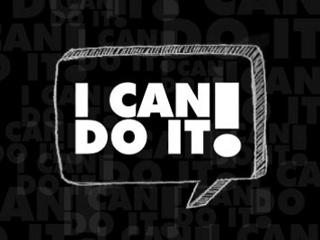AP Psychology Exam Study Guide: 14 Key Topics to Study
/AP Psychology is said to be one of the easiest exam there is, as far as AP Exams go. The AP Psychology exam is all about testing students' knowledge of the 14 key topics outlined on the College Board description of the course. AP Psychology is meant to be give the students willing to take up the challenge of a college-level class. In this article, I will talk about the 14 topics as well as the percentages of the test devoted to each topic. This article will be followed with more articles about my experience and the exam.
Topics
1.History and Approaches
This topic takes up 2-4 percent of the test and talks about the different theories that psychologists used to explain the mental processes. They also talk about the different approaches used to collect data along with the important figures of psychology.
2.Research Methods
This topic takes up 8-10 percent of the test and talks about the different types of research and their importance to gather data and how to apply the research develop theories to explain behavior.
3.Biological Bases
This topic takes up 8-10 percent of the test introduces the different physiological processes and their relationship to behavior. The different physiological processes include the brain, nervous system, and genes and how they contribute to behavior. This is one of them most parts the curriculum. This chapter also includes important figures.
4.Sensation and Perception
This topic takes up 6-8 percent of the test and talks about the different sensory processes as well sensory disorders. They also talk about how experience and culture can influence perception. This chapter also includes important figures in sensation and perception.
5.States of Consciousness
This topic takes 2-4 percent of the test and talks about the variations in conscious including the sleep cycle, dreams, hypnosis, circadian rhythms, and the effect of psychoactive drugs. This chapter also includes important figures in consciousness research.
6.Learning
This topic takes up 7-9 percent of the test and is also one of the most important topics. This topic introduces the difference of learned and unlearned behavior. It focuses on the different kinds of learning. This chapter also includes the important figures in the psychology of learning.

7.Cognition
This topic takes up 8-10 percent of the test and teaches the student how humans convert sensory inputs into information. It talks about how humans learn, remember, and retrieve information. This chapter also includes the important figures in cognitive psychology.
8.Motivation and Emotion
This topic takes up 6-8 percent of the test and allows student to learn about the biological and social factors that motivate behavior. It also talks about the biological and cultural factors that influence emotion. This chapter also includes important figures the psychology of motivation and emotion.
9.Development Psychology
This topic takes up 7-9 percent of the test and talks about the behavior from conception to death and how different processes that contribute to behavior changes. This chapter has a heavy emphasis on prenatal development to adulthood. This chapter includes important figures in development psychology.
10. Personality
This topic take up 5-7 percent of the test and explores the theories of how humans develop patterns of behavior and personal characteristics that influence how other relate them. This also discusses the research methods used to asses personality. This chapter includes important figures is personality figures.

11.Testing and Individual Differences
This topic takes up 5-7 percent of the test and talks about the theories of intelligence and the different type of intelligence tests. This chapter includes the important figures in intelligence research and testing.
12.Abnormal Behavior
The topic takes up 7-9 percent of the test and talks the different disorders ranging from mood disorders to personality disorders. It also talks about the approaches to explaining psychological disorders. It also discusses the consequences of label and how the legal system views mental disorders.
13. Treatment of Abnormal Behavior
This topic takes up 5-7 percent of the test and talks about the treatments of psychological disorders. It talks about the different types of therapy and the effectiveness of the specific treatments. This chapter includes important figures in psychological figures.
14.Social Psychology
This topic takes up 8-10 percent of the test and discusses how people relate one another in social situations. It talks about the social psychologists and what they study such as social attitudes, social influence, etc. This chapter includes the important figures in social psychology.
I hope these tips will help you and I hope you come back for the other article. This information comes from the College Board description of the course. Leave a comment down below if you have any questions. And as always make sure you follow us on Instagram and Facebook.















